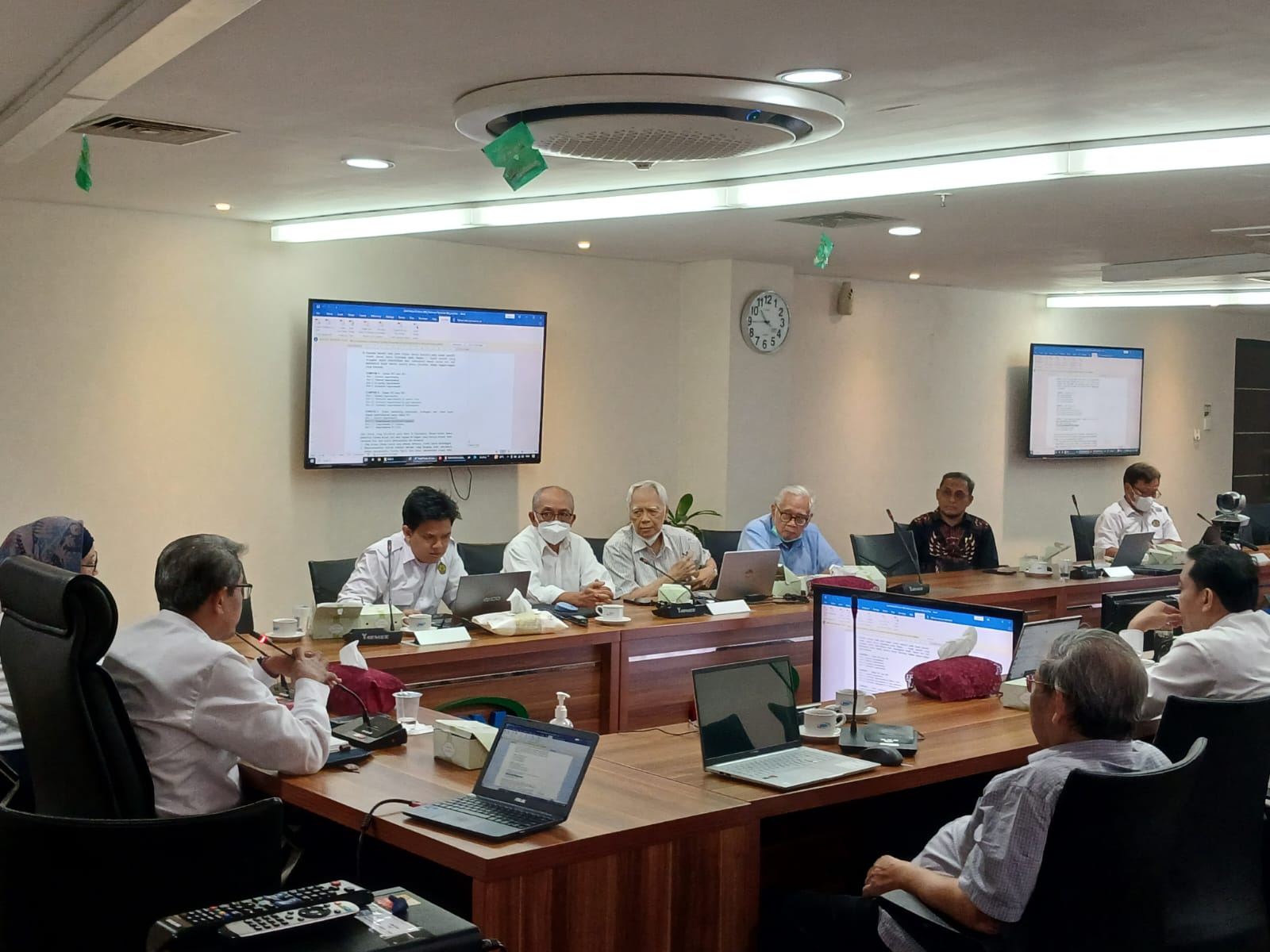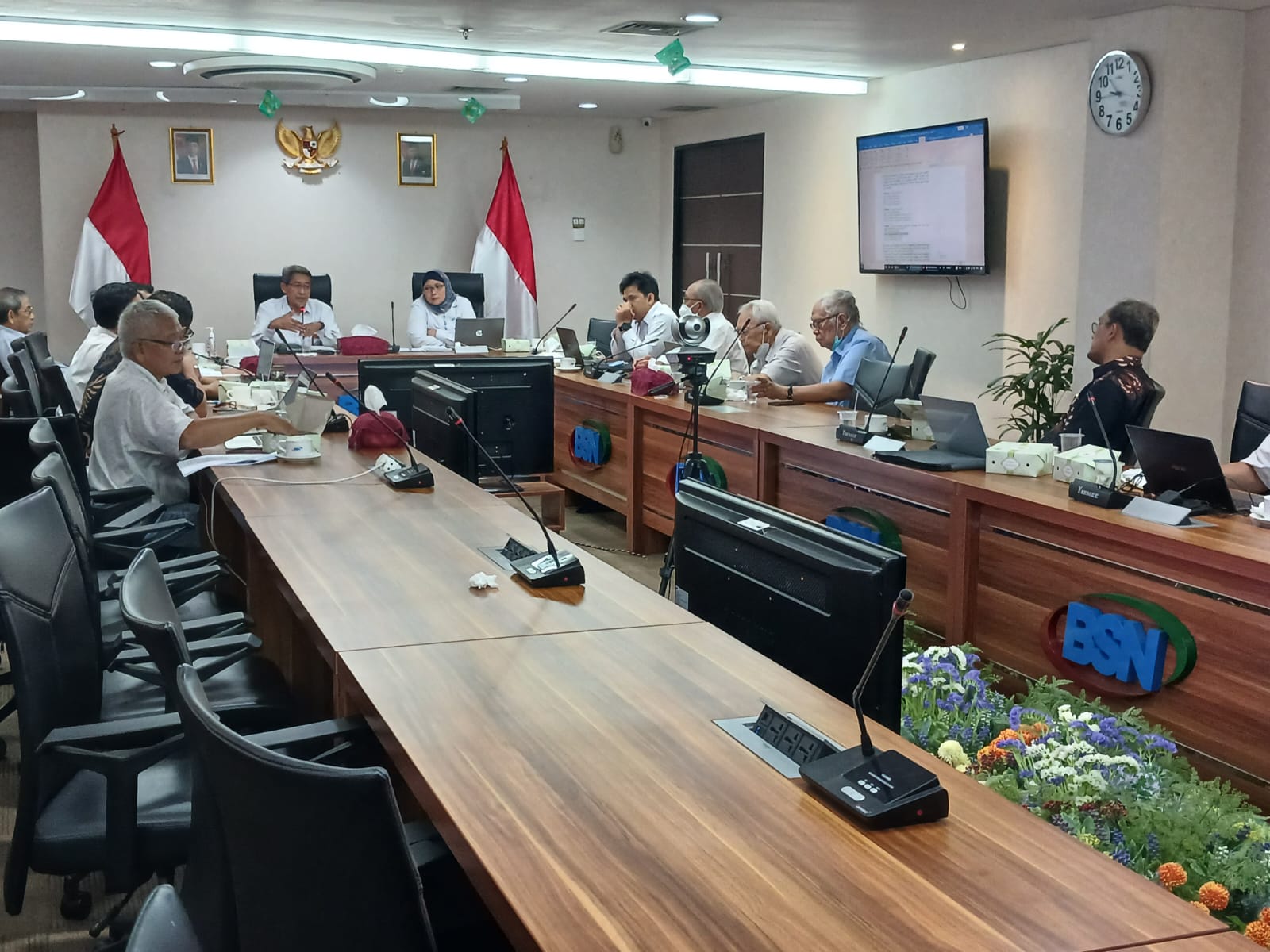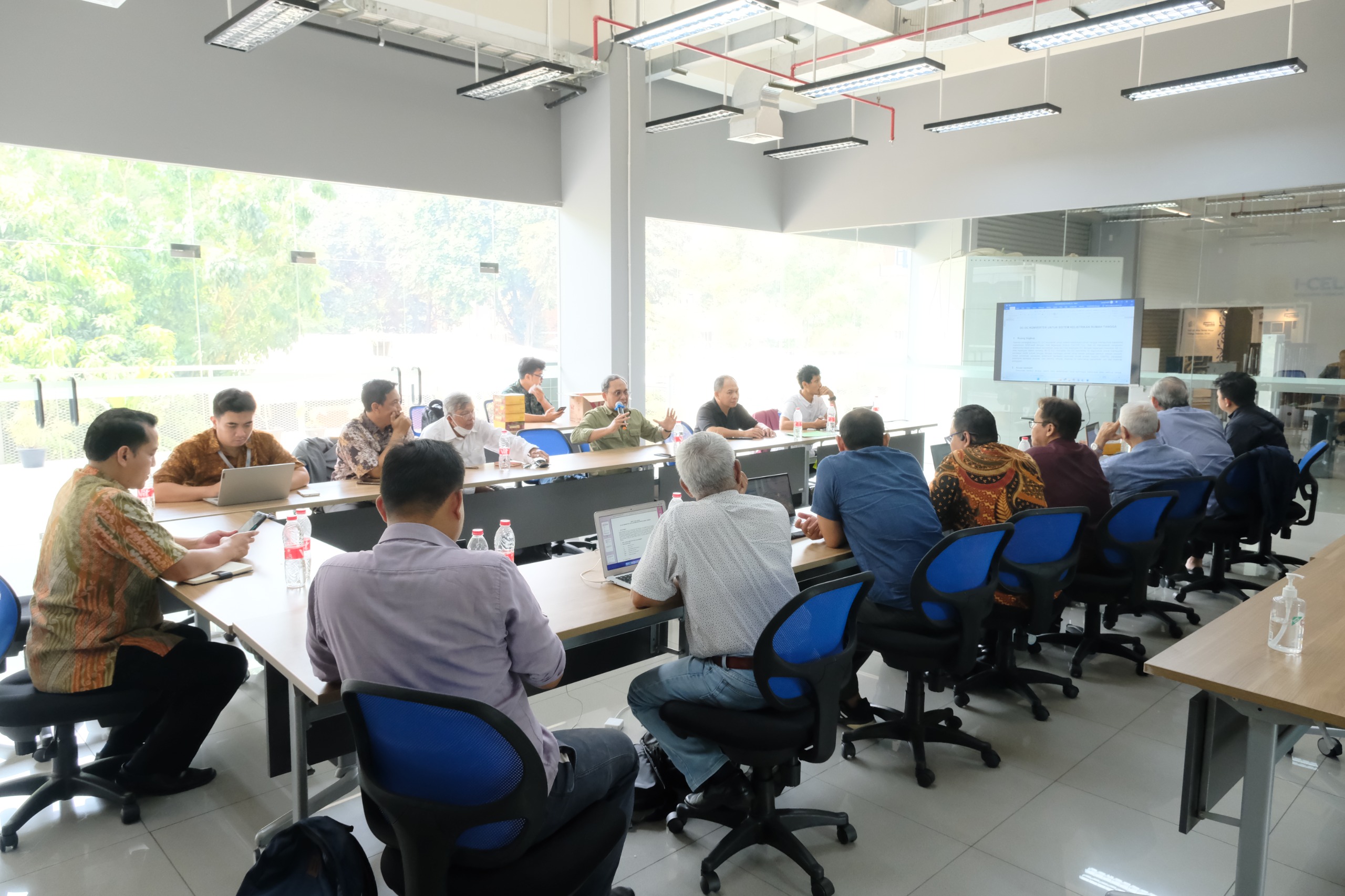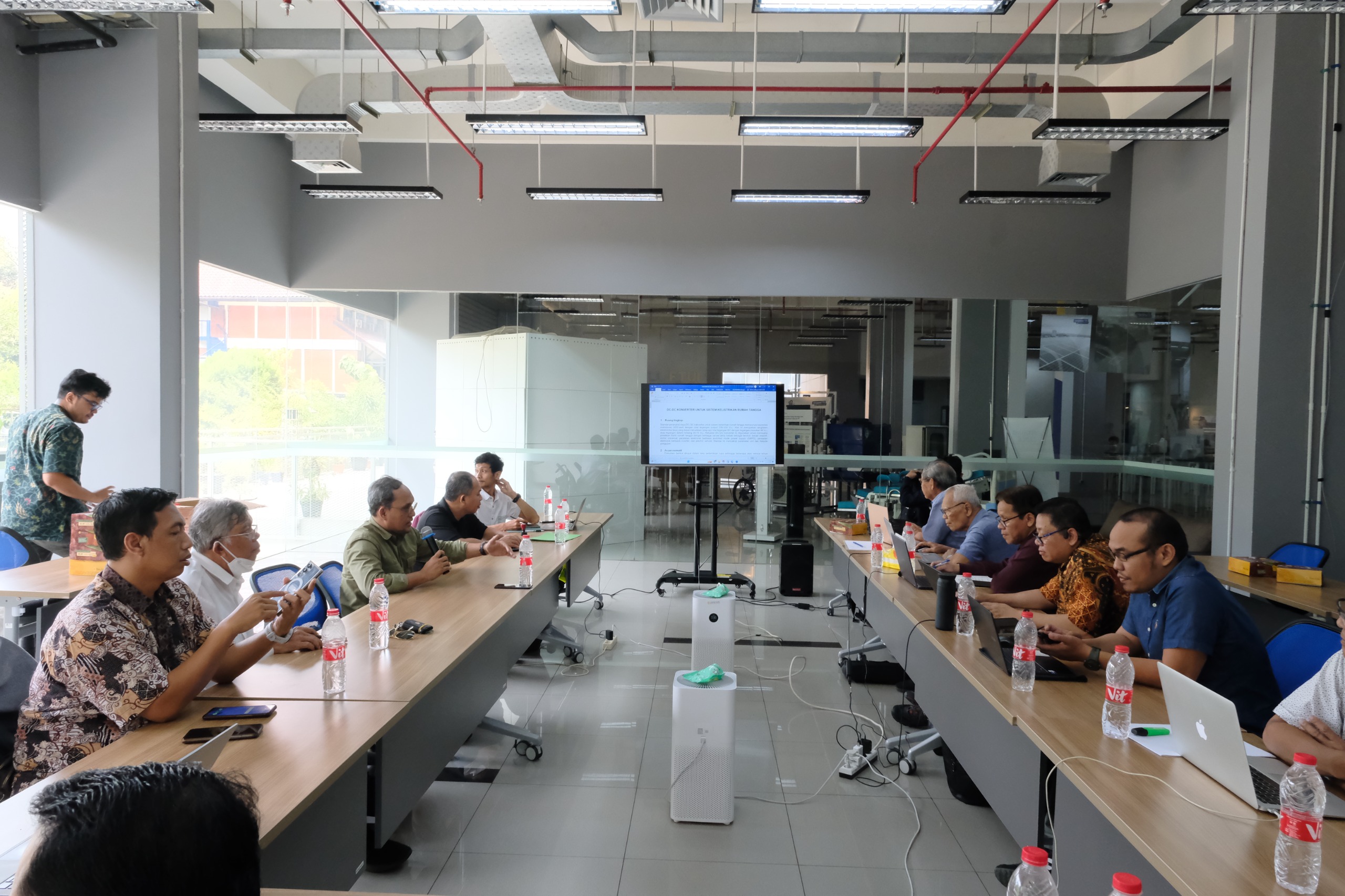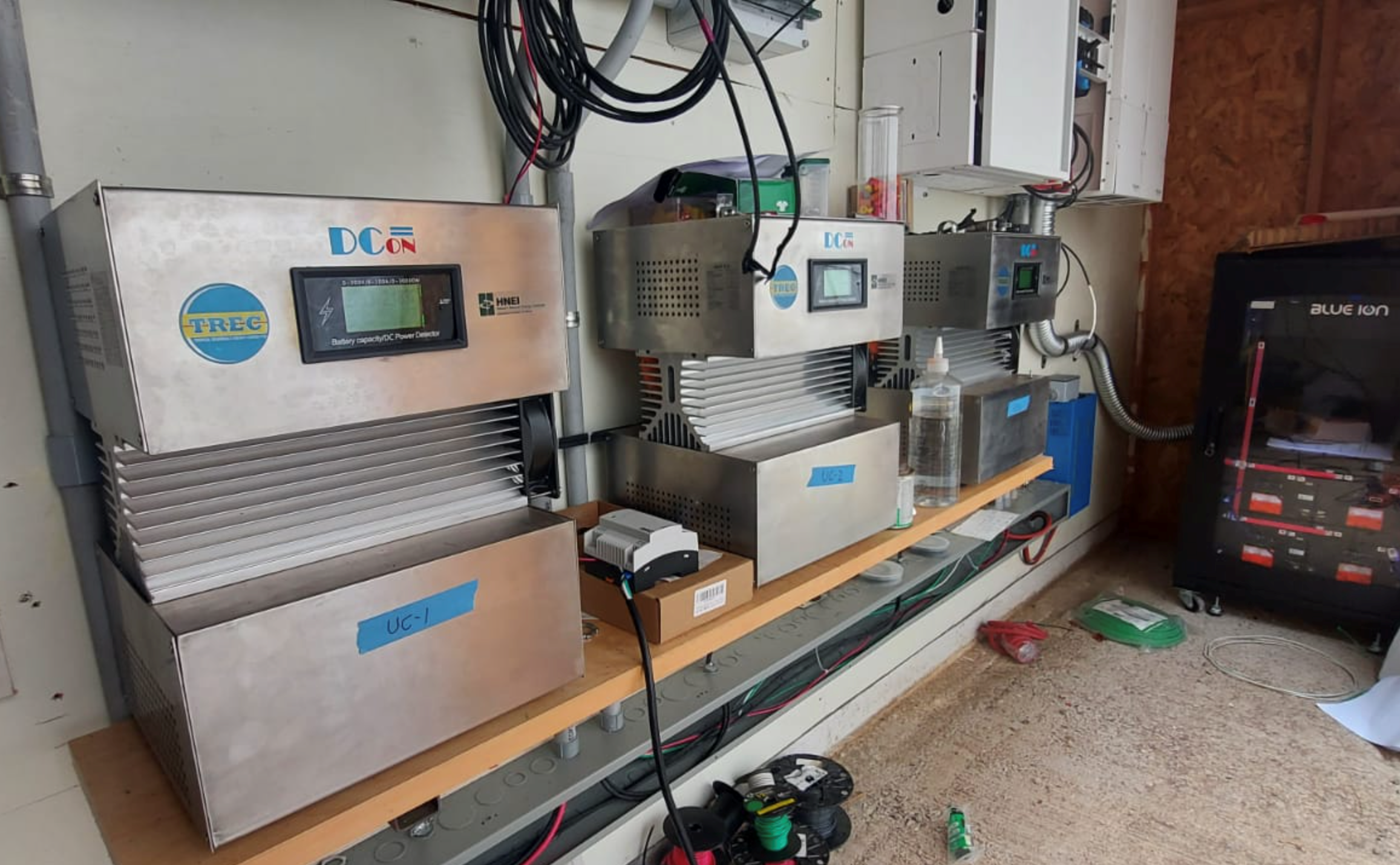Universitas Indonesia (UI) through the Tropical Renewable Energy Center (TREC), a research centre under the Faculty of Engineering (FT) Universitas Indonesia (UI), once again demonstrated its active role in the development of renewable energy in Indonesia. TREC participated as the concept team for the Indonesian National Standard (SNI) draft in the formulation of SNI 9233:2024, which was established by the National Standardization Agency (BSN) on April 25, 2024. This standard is published under the title “Safety Requirements for System and Power Electronic Converter Equipment – Special Requirements for AS/AS Boost Converters with Rated Voltage Not Exceeding 330 V AS for Household Electrical Equipment.”
SNI 9233:2024 was developed through the self-development pathway by Technical Committee 29-01, comprising experts representing stakeholders in the electrical sector. The self-development pathway of SNI refers to a standard formulation process involving a consensus-based and scientific evidence approach. In this case, the SNI does not only refer to one international standard but can take references from several other relevant standards. Unlike adopting international standards, the self-development pathway allows SNI to be formulated according to national needs and local conditions in Indonesia.
After going through the public consultation phase from November 18, 2023, to December 3, 2023, the final results were approved and established as Indonesian National Standard (SNI) 9233:2024. The SNI development process involves several stages: National Standard Formulation Program (PNPS) SNI, drafting the SNI Draft Concept (RSNI1), technical meetings and consensus meetings RSNI2, public consultation RSNI3, finalization RSNI4, and the establishment of the Final SNI Draft (RASNI) into SNI. With the presence of SNI 9233:2024, it is hoped to provide clear guidelines to enhance the safety of DC-DC Converter systems and equipment in Indonesia in the future.
The Head of the SNI Conceptual Team from TREC, Dr.-Ing. Eko Adhi Setiawan, S.T., M.T., IPU., APEC Eng., stated, “This standard is essentially based on the research outcomes of my colleagues and me at TREC FTUI, funded by LPDP, namely DCON, a DC-DC Converter with a power conversion capacity of 2.5-3 kilowatts. DCON can produce direct current electricity and distribute it to various household appliances such as PCs, laptops, televisions, mobile phones, water heaters, and lamps without requiring modifications to the existing equipment. The main advantage of DCON is that the electricity generated is more stable and efficient compared to conventional alternating current (AC) systems.”
Currently, the majority of people in Indonesia still use AC electricity, which is alternating current. On the other hand, DCON is a power conversion device capable of producing direct current (DC) up to a voltage of 330V. This is because DCON is still classified as a new technology, and its users are limited to early adopters. This device has great potential to promote the use of renewable energy in the residential sector because DCON utilizes battery technology charged from solar panels, fuel cells, or small-scale wind turbines. Therefore, TREC FTUI proposed the formulation of the standard to BSN.
Furthermore, Dr. Eko explained that the initial concept behind the design of DCON was to create renewable energy that could be applied to household electricity systems. In 2021, DCON received international recognition with three units ordered by The Hawai’i Natural Energy Institute (HNEI), one of the leading energy research centres in the United States. DCON was used as the main component in the GridStart/microgrids DC project aimed at developing, testing, and evaluating innovative renewable energy technologies. With this, DCON becomes tangible evidence that domestic products can compete and be recognized internationally.
FTUI Dean, Prof. Dr. Ir. Heri Hermansyah, S.T., M.Eng., IPU., stated, “TREC’s participation in formulating SNI 9233:2024 proves that the research conducted at FTUI is not only academically relevant but also has a real impact in supporting industrial development on both national and international scales. With strong synergy between academics, government, and researchers, it is hoped that the formulation of SNI 9233:2024 can be well-implemented to support the advancement of renewable energy technology in Indonesia,” said Prof. Heri.
Additionally, he emphasized the importance of standards in the technology industry. He stated that anyone can create a product, but not everyone can determine the standard of that product. Standards are needed to guarantee users that the product they use complies with established regulations. “The presence of SNI 9233:2024 will become a standard safety reference for similar products created in the future,” said Prof. Heri.
The Tropical Renewable Energy Center or TREC is a renewable energy research center at the Faculty of Engineering, Universitas Indonesia, established in 2015. TREC focuses on empowering renewable energy sources in Indonesia to support national energy resilience and sustainability. Currently, TREC has nine research focuses: Green Building, Circular Economy and Waste Management, Smart Grids, Materials for Energy, High Voltage, Energy Storage, Biomass Energy, Fluid Energy, and Marine Energy.
***
Public Communication Office
Faculty of Engineering, Universitas Indonesia

